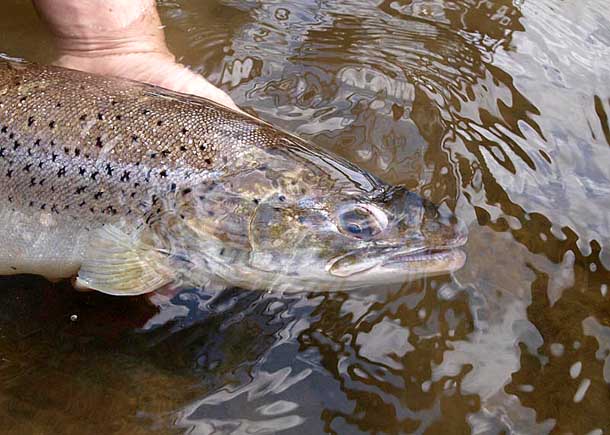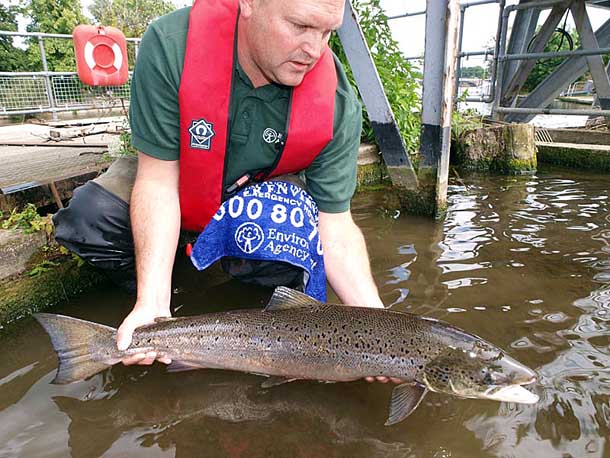Thousands of fish have been killed in a pollution incident on the tidal Thames in West London after nearly half a million tonnes of sewage poured into the river over the weekend. Anglers were out on Monday evening trying to rescue dying fish stranded on the river’s beaches. The fish included roach, dace, bream, eels, perch, pike, sea bass and flounder. The tidal Thames is an important coarse fishery as well as being a vital nursery area for marine fish species for the whole of the South East of England.
Heavy rain over the weekend led to London’s sewerage system overflowing into the river. Because the spill followed a long dry spell, the sewage was particularly noxious. More than 250,000 tonnes of storm sewage entered the river from combined sewer overflows (CSOs) and at least 200,000 tonnes from the Mogden Sewage Treatment Works in Isleworth, which is currently being upgraded.
The Environment Agency is monitoring oxygen levels in the river and Thames Water has dosed the polluted water with hydrogen peroxide to add oxygen to the water. The company’s oxygenation vessels have also been deployed to the area.
Anglers and environmental campaigners have been calling for decades for improvements to the capital’s sewerage network because of a series of similar incidents in recent years (notably in 2004 and 2009). Plans are now at last in place for a new ‘Super Sewer’ under the Thames which would prevent these spills happening, but completion of these works is still years away and could be threatened if funds are not made available or planning authorities stand in the way.
Angling Trust Chief Executive Mark Lloyd said: “It is heartbreaking to see so many young fish being repeatedly poisoned in sewage. We hope that incidents such as this will convince policy makers and London local authorities of the need for the Thames Tunnels scheme, which is vital for the future of the capital’s river.”
Thames Anglers’ Conservancy Chairman James Page said: “Our rapid response crew were down on the beach as soon as this happened but they felt helpless to save the countless fish they could see gasping in the water’s edge. Anglers and water bill payers alike need to see action to stop this happening in the future.”
Two very lucky fish that had been trapped at Molesey Weir and escaped the pollution.

A 2 kg Sea Trout and –

Adrian Bicknell releases a 5kg male salmon










